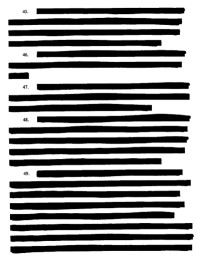In 1993, the Supreme Court revisited Rule 43 in the case of
Crosby v. United States.
[28] The Court unanimously held, in an opinion written by Justice
Harry Blackmun, that Rule 43 does not permit the trial
in absentia of a defendant who is absent at the beginning of trial.
This case requires us to decide whether Federal Rule of Criminal Procedure 43 permits the trial
in absentia of a defendant who absconds prior to trial and is absent at its beginning. We hold that it does not. ...The Rule declares explicitly: "The defendant shall be present...at every stage of the trial...
except as otherwise provided by this rule" (emphasis added). The list of situations in which the trial may proceed without the defendant is marked as exclusive not by the "expression of one" circumstance, but rather by the express use of a limiting phrase. In that respect the language and structure of the Rule could not be more clear.
However, the
Crosby Court reiterated an 80-year-old precedent that
"Where the offense is not capital and the accused is not in custody, ...if,
after the trial has begun in his presence, he voluntarily absents himself, this does not nullify what has been done or prevent the completion of the trial, but, on the contrary, operates as a waiver of his right to be present and leaves the court free to proceed with the trial in like manner and with like effect as if he were present."
[29] Diaz v. United States, 223 U.S. at 455 [1912] (emphasis added).
Some state laws provide for automatic retrial of fugitives who are arrested after being convicted
in absentia.





